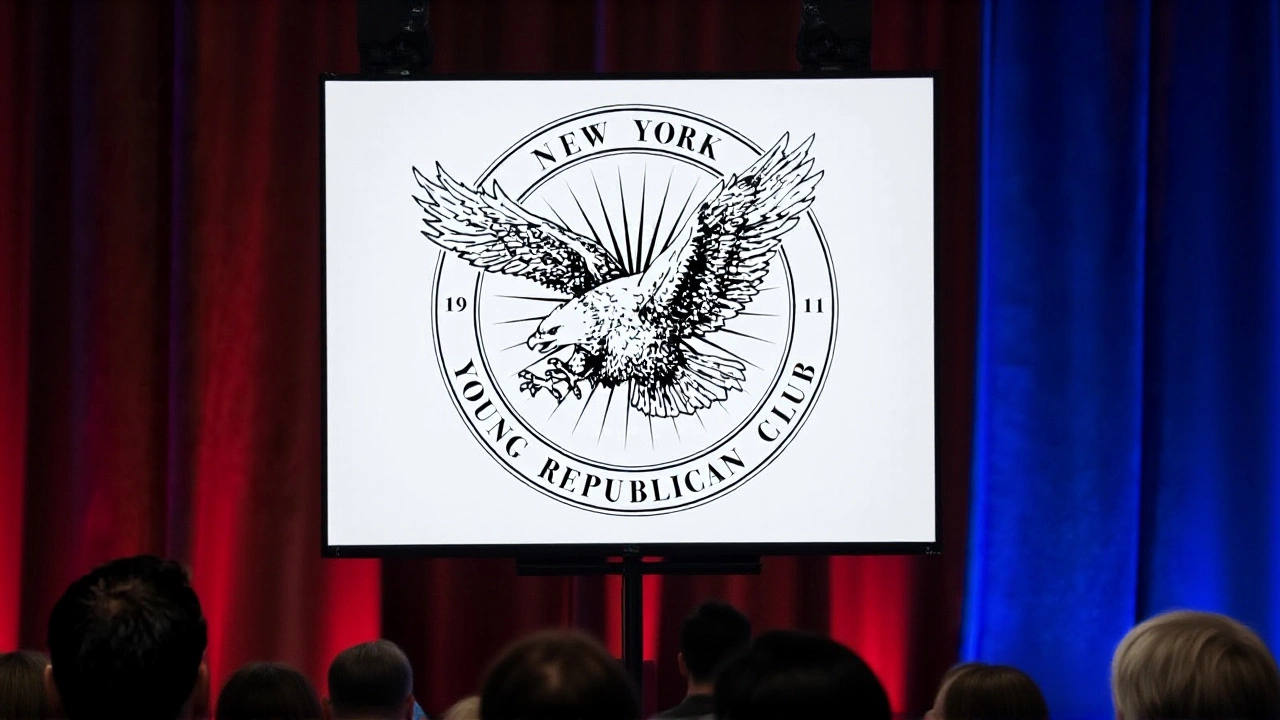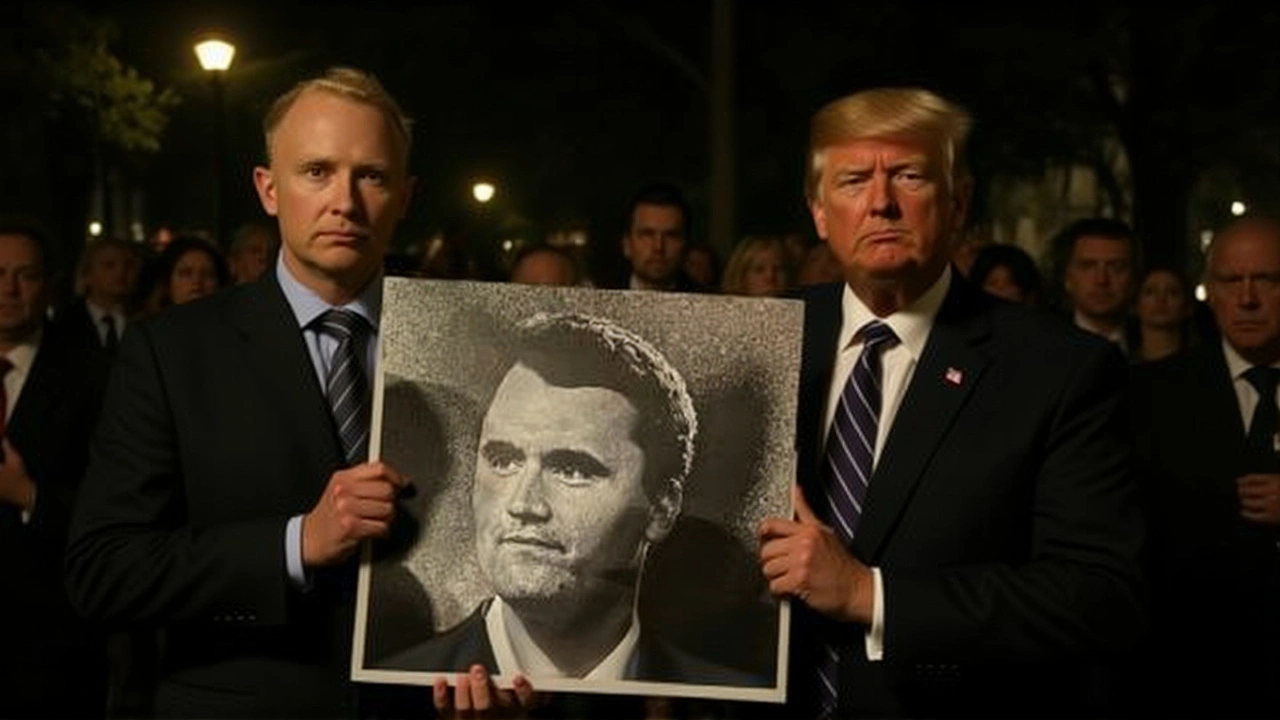When Charlie Kirk, founder of Turning Point USA was shot on September 10, 2025, communities across the Northeast gathered to honor his memory. The most recent gatherings unfolded on what would have been Kirk’s 32nd birthday, October 14, 2025, drawing hundreds of people to parks and plazas in New York, New Jersey, and Maine. Organizers stressed that the vigils were about rejecting political violence, not about partisan rallying.
Background: Kirk, Turning Point USA, and the Utah Tragedy
Kirk, a 31‑year‑old conservative activist, built Turning Point USA into a nationwide campus network that championed limited government and free‑market ideas. On the evening of September 10, 2025, the group hosted a debate at Utah Valley University in Orem, Utah. During a heated exchange, 22‑year‑old Tyler Robinson fired a single rifle shot that struck Kirk in the chest. Robinson was arrested at the scene, charged with murder, and remains in custody while his defense team files pre‑trial motions.
The killing sent shockwaves through the conservative youth movement and sparked nationwide talks about campus safety and the growing chill of political intimidation. In the weeks that followed, friends, family, and community leaders organized memorial services that deliberately avoided the usual partisan flashpoints.
Vigil in Secaucus, New Jersey
On Tuesday evening, October 14, 2025, Nick Mattiello, a resident of Secaucus, set up a candlelight vigil at Buchmuller Park. He addressed a crowd of several hundred, insisting the event "wasn't about politics" even as he acknowledged Kirk’s controversial profile. "Like Charlie, I stand firmly in my faith, in my beliefs … We must live like Jesus died yesterday … and is coming back this evening," Mattiello said, before adding that "Charlie burned bright in a world that has gone dark."
The gathering mixed solemn hymns with quiet moments of reflection. While Mattiello didn’t name any perpetrators, he claimed that "they aimed to steal his voice and all they did was amplify his vision," leaving the reference open-ended.
Queens, New York: A Massive "We Will Not Be Silenced" Rally
Nearly two weeks after the shooting, on September 23, 2025, Robert Holden, a New York City Council member, hosted a larger vigil in Middle Village, Queens. The event kicked off at 6:00 p.m. near the Juniper Valley Park tennis courts and drew more than 1,000 attendees, according to Holden’s count.
Co‑hosted by District 30 Republican candidate Alicia Vaichunas, Queens County GOP Chair Tony Nunziato, and local restaurateur Dani Marciano, the rally was billed "We Will Not Be Silenced." Holden framed the gathering as a tribute to Kirk’s "life and legacy" while urging participants to "stand together against political violence of any kind." In an Instagram post, Holden wrote, "We can argue hard on the issues, but words matter. Let’s lower the temperature, choose debate and discourse over demonization, and keep our city united and safe."
York, Maine: A Quiet Birthday Vigil
Across the country, about thirty‑six people assembled at 5:00 p.m. Eastern Time on October 14, 2025, in York, Maine. The small gathering coincided with a local newspaper’s report that Kirk had been posthumously awarded the Presidential Medal of Freedom—a claim not corroborated by federal sources but noted in the Seacoast Online article covering the event. Attendees lit candles and read a short biography of Kirk, emphasizing his commitment to "civil discourse" and "young leadership."
Community Reactions and Shared Themes
Across all three states, the common thread was a heartfelt condemnation of political violence. Mattiello, despite his own outspoken reputation, deliberately framed his remarks in spiritual terms, while Holden leaned on civic unity. Both echoed a refrain heard earlier in the Poughkeepsie, New York vigil on October 13, where organizers simply labeled Kirk a "prominent conservative activist who was tragically killed" without delving into policy debates.
Local journalists, such as Daniel Ulloa of the Hudson County View, noted that the Secaucus vigil managed to honor a polarizing figure while sidestepping the typical partisan posturing that often clouds such events.

Legal Proceedings and Upcoming Trials
Robinson’s defense filed a motion on October 15, 2025, requesting that he be allowed to wear civilian clothing during his trial, a procedural request that underscores the case’s tactical stage. No trial date has been set, but the motion indicates that pre‑trial discovery is already in motion.
Legal experts, including criminal defense attorney Megan Hsu of Salt Lake City, warned that the high‑profile nature of the case could pressure prosecutors to seek a swift conviction, potentially limiting the defense’s ability to present mitigating evidence.
Broader Implications: Political Violence and Public Discourse
These vigils arrived at a moment when national surveys show rising anxiety about political polarization. A recent Pew Research Center poll released in August 2025 found that 62 % of Americans feel that political disagreement often turns "violent or threatening." The New York and New Jersey gatherings, therefore, functioned as both mourning and a signal that some community leaders are pushing back against the narrative that dissent must be met with aggression.
Critics, however, argue that honoring a figure like Kirk—who was known for aggressive rhetorical tactics—might inadvertently glorify the very style of confrontation they claim to denounce. The debate continues in op‑eds across the political spectrum.
What Lies Ahead
- Robinson’s trial, expected sometime in 2026, will likely reignite discussion about campus security policies.
- Local officials in New York City have pledged to host a town‑hall on "safe civic engagement" within the next six months.
- Turning Point USA announced plans to award a scholarship in Kirk’s name, aimed at encouraging students to study law and public policy.
Whether these initiatives can bridge the divide remains an open question, but the vigils demonstrated that, at least for a handful of evenings, communities chose to gather in silence rather than swords.
Background Deep Dive: A History of Campus‑Related Political Violence
The killing of Kirk is not the first instance of a politically charged homicide on a college campus. In 2017, a professor at a Texas university was fatally stabbed during a heated debate on immigration. That incident spurred the Department of Education to issue guidelines emphasizing "protective measures for free speech events." More recently, a 2022 shooting at a law school in Pennsylvania left three injured after a protest turned violent.
Each episode has prompted calls for tighter security, but also for stronger protections of civil discourse. Scholars like Dr. Lena Ortiz of Columbia University argue that "the response must balance safety with the preservation of robust, even uncomfortable, debate—a tension that has defined American public life since the founding era."
Frequently Asked Questions
How do these vigils affect the conservative community in the Northeast?
The gatherings gave conservative activists a public space to mourn without overt partisanship, reinforcing a sense of solidarity while also inviting broader dialogue about political violence. Attendance numbers—hundreds in New Jersey and over a thousand in Queens—suggest a strong desire for communal healing.
What legal steps are slated for Tyler Robinson's case?
Robinson remains in custody awaiting a murder trial in Utah County District Court. His attorneys filed a motion on October 15, 2025, to wear civilian clothing during the proceedings. No trial date has been set, but pre‑trial motions indicate the case will likely move forward in 2026.
Why did organizers avoid explicit political slogans?
Speakers like Nick Mattiello and Robert Holden emphasized that the events were about condemning violence, not advancing any party platform. This approach aimed to attract a broader audience and prevent the vigils from being co‑opted by partisan groups, thereby preserving the message of civil discourse.
What are experts saying about the impact on campus safety policies?
Criminal justice scholars note that high‑profile incidents often spur universities to review security protocols. Dr. Lena Ortiz of Columbia University stresses that any policy changes must protect free speech while preventing violence, a balance that has proven difficult to achieve in past cases.
Will there be any legislative response to the shootings?
State legislators in New York and New Jersey have signaled interest in hearings on political violence, but no bills have been introduced yet. The focus remains on community dialogue and law‑enforcement coordination rather than immediate legislative action.
 Oct, 16 2025
Oct, 16 2025
